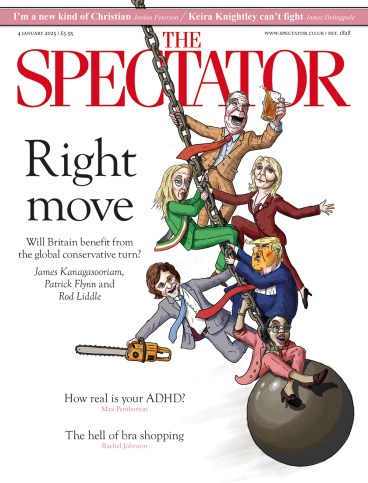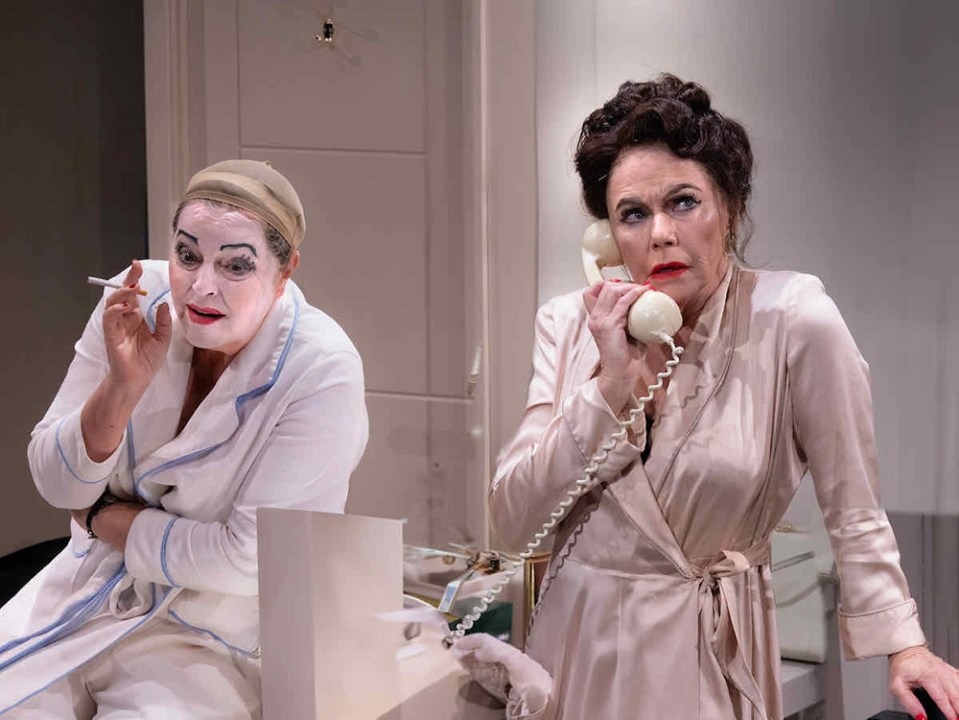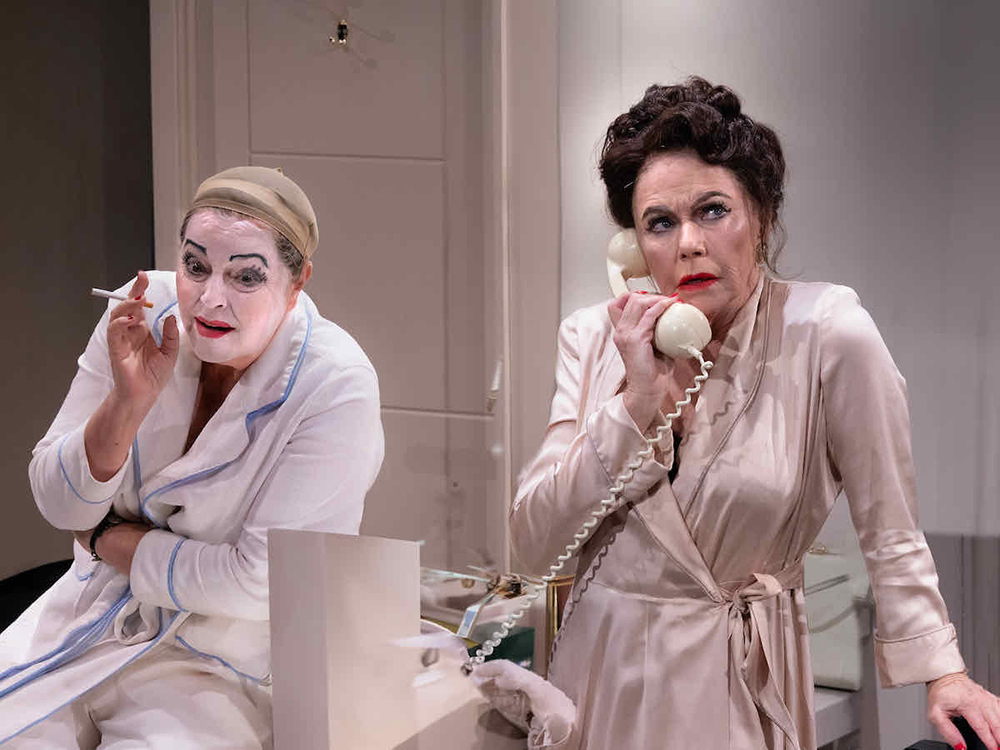
Lloyd Evans has narrated this article for you to listen to.
The Last Days of Liz Truss? is a one-woman show about the brief interregnum between Boris Johnson and Rishi Sunak. We first meet the future prime minister at a nursery school in Paisley where she orders the teachers to call her Elizabeth and not to use her first name, Mary. This establishes her combative, self-righteous nature and her utter dislike of authority.
Truss is like the smell of gas indoors. Even a tiny amount is too much
She left Oxford with a PPE degree and became a political activist while setting her sights firmly on parliament. (By researching the CVs of every sitting member, she had discovered that one in 30 of them held a degree in PPE from Oxford.) She was on her way. After a short flirtation with the Lib Dems, she found her true calling in the Tory party where she met the MP, Mark Field. ‘He mentored me,’ she says euphemistically. They had an affair which led to the collapse of Field’s marriage. But the canny Truss kept her own relationship intact.
She wrote a political manifesto, Britannia Unchained, which outlined her vision of a soaraway economy with low taxes and minimal state interference. Emma Wilkinson Wright reads from this book and delivers a convincing portrait of Truss’s stiff, impersonal character and her clotted, off-beat rhetorical manner.
The former prime minister is like the cleverest girl in school, who is also the most irritating. You want to admire her but you just can’t. The script shows little interest in Truss’s family life and overlooks her rumoured affair with her chancellor, Kwasi Kwarteng (which she has denied), but he gets to the heart of her political downfall.
In 2017, Truss was appointed chief secretary to the Treasury, where the top mandarins were openly scornful of her abilities. She felt that she’d been told to ‘stand in the corner’. As prime minister she took revenge, but the Treasury closed ranks against her and when the economy began to tank she received no help from the civil service or from senior bankers. A lack of empathy destroyed her.
This play is an interesting account of a strange blip in the political history books. Truss was a stubborn, haughty number-cruncher who fluked her way into the top job and was swiftly – and efficiently – neutralised by the Whitehall system. The title hints that she might make a comeback. But Truss is like the smell of gas indoors. Even a tiny amount is too much.
Truss’s idol, Margaret Thatcher, is remembered in a monologue by Downton Abbey actor, Ruairi Conaghan. The show, Lies Where It Falls, traces every detail of Conaghan’s career – which includes a drama about the Brighton bomber, Patrick Magee. To gain a better understanding of Magee’s motives, Conaghan sets up a meeting with the convicted terrorist, but Magee is rather short of conversation. He declines even to talk about his musical tastes. All he reveals is that he was able to speak in a convincing English accent because he was raised in East Anglia. To the IRA, this made him a master of disguise. Anyone hoping to learn more about the Brighton bomber will be disappointed by this show.
More monologues in Bette and Joan by Anton Burge. This inspired play looks at the screen goddesses, Davis and Crawford, as they prepare to shoot their classic movie, What Ever Happened to Baby Jane?. They sit in adjoining dressing rooms and take calls from agents, publicists and from the film’s long-suffering director. At the same time they engage in non-stop catfighting about their careers. It’s riveting stuff.
Joan (Felicity Dean) is a warm, glamorous presence who opens up about her active sex life. She learns from her lovers, she says, and then she moves on. She offers this advice about discarding an unwanted husband: ‘Change the locks and the toilet seat.’ Bette (Greta Scacchi) is harder to like but she doesn’t seem to care. She came to Hollywood from ‘the theatuh’ and she looks down on Joan, who got her break as a dancer and then moved into pornographic films. Bette reached the top with a combination of talent and a sharp eye for the right script. ‘I played bitches,’ she says, ‘because I wasn’t one. That’s why Miss Crawford always played ladies.’
She also boasts that she’s celibate – ‘I’m all zipped up’ – and has no interest in maintaining her good looks. During the show she sabotages her beauty by caking her cheeks and eyes in white slap which gives her the ‘startled panda’ look from the movie.
The contest between the fallen goddesses ends in a draw. Each playgoer will have their favourite. Joan speaks movingly about Clark Gable, whom she adored but never married. She was devastated when he died shortly after making The Misfits with Marilyn Monroe. ‘She killed the king,’ says Joan bitterly. She openly rejoices at Marilyn’s premature death. This is a brutally honest and brilliantly acted show full of spite, gossip, cruelty and slander. What more could you want?









Comments